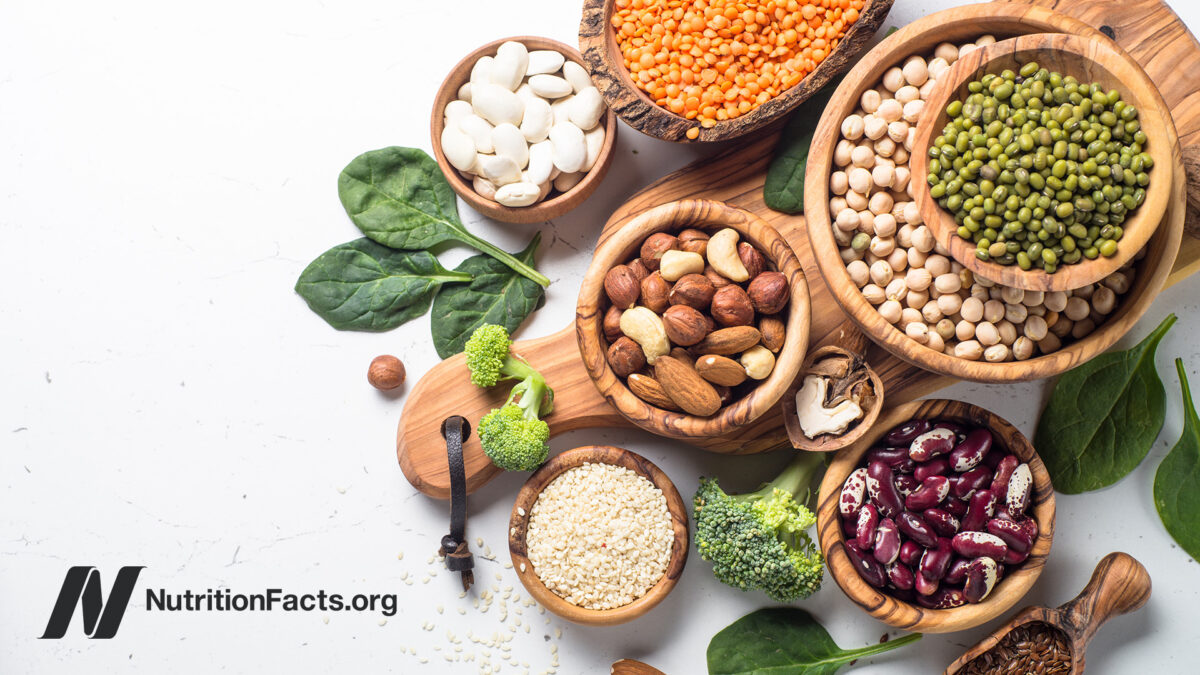
Protein
In the two decades between 1990 and 2010, the leading causes of death and disability remained relatively constant. Heart disease remains the leading cause of loss of health and life, but among the diseases whose incidence has increased the most over the past generation is chronic kidney disease. The number of deaths has doubled.
Our “meat-sweet” diet has been implicated in this escalation. Excess table sugar and high-fructose corn syrup consumption is associated with increased blood pressure and uric acid levels, both of which can damage the kidney. The saturated fat, trans fat, and cholesterol found in animal products and junk food are also associated with impaired kidney function, and meat protein increases the acid load to the kidneys, boosting ammonia production and potentially damaging our sensitive kidney tissue. This is why a restriction of protein intake is often recommended to chronic kidney disease patients to help prevent further functional decline.
Is all protein created equal? No—not all protein has the same effect on your kidneys. Our kidneys appear to handle plant protein very differently from animal protein. Within hours of consuming meat, our kidneys rev up into hyperfiltration mode, dramatically increasing the kidneys’ workload. This is true of a variety of animal proteins—beef, chicken, and fish appear to have similar effects. But an equivalent amount of plant protein causes virtually no noticeable stress on the kidneys. Eat some tuna, and within three hours, your kidney filtration rate can shoot up 36 percent. But eating the same amount of protein in the form of tofu doesn’t appear to place any additional strain on the kidneys.
Why does animal protein cause the overload reaction while plant protein doesn’t? Researchers discovered that after giving subjects a powerful anti-inflammatory drug along with animal protein, the hyperfiltration response disappeared, suggesting the hyperactive response was triggered by inflammation.
Animal protein may also play a role in cancer risk. IGF-1, insulin-like growth factor 1, is a cancer-promoting growth hormone that is released in excess when we eat animal protein. This is presumably why those who eat less meat, egg white, or dairy proteins have significantly lower levels circulating within their bodies within weeks of making the dietary switch. This lowering of IGF-1 levels is thought to be why the blood of men and women eating plant-based diets suppresses prostate and breast cancer growth in vitro significantly better than those eating the Standard American Diet.
For substantiation of any statements of fact from the peer-reviewed medical literature, please see the associated videos below.
Popular Videos for Protein

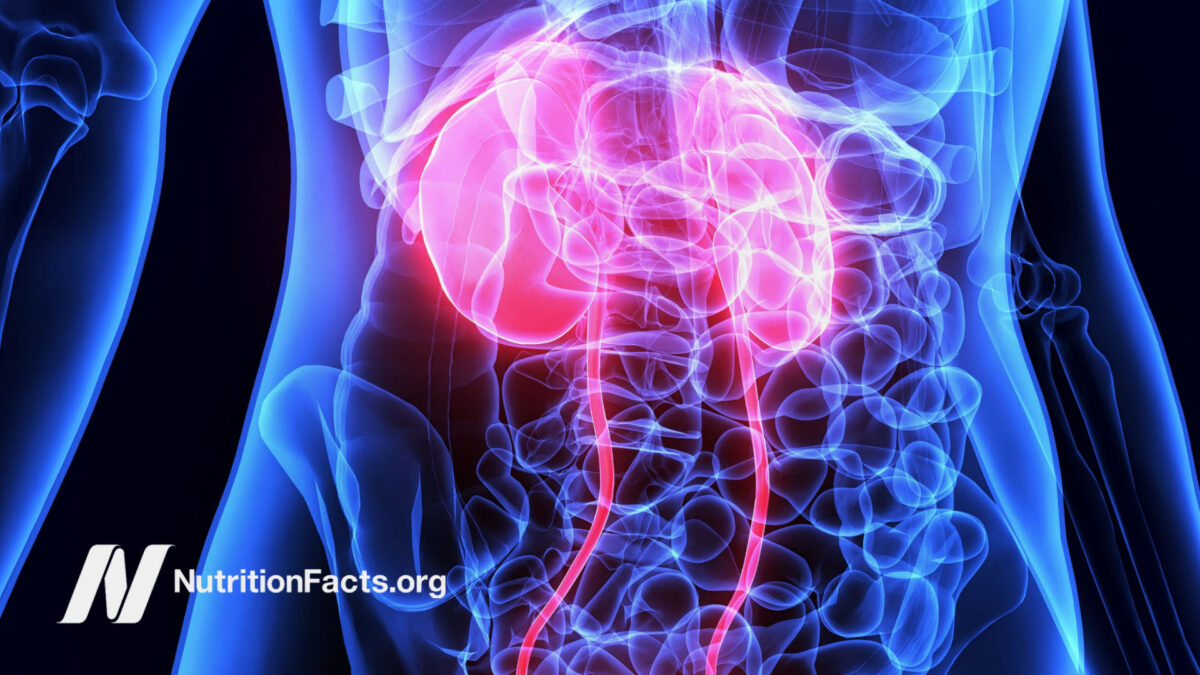
Lower Protein Diet Proven to Help Kidney Disease
How might we cut the risk of dialysis and death in half?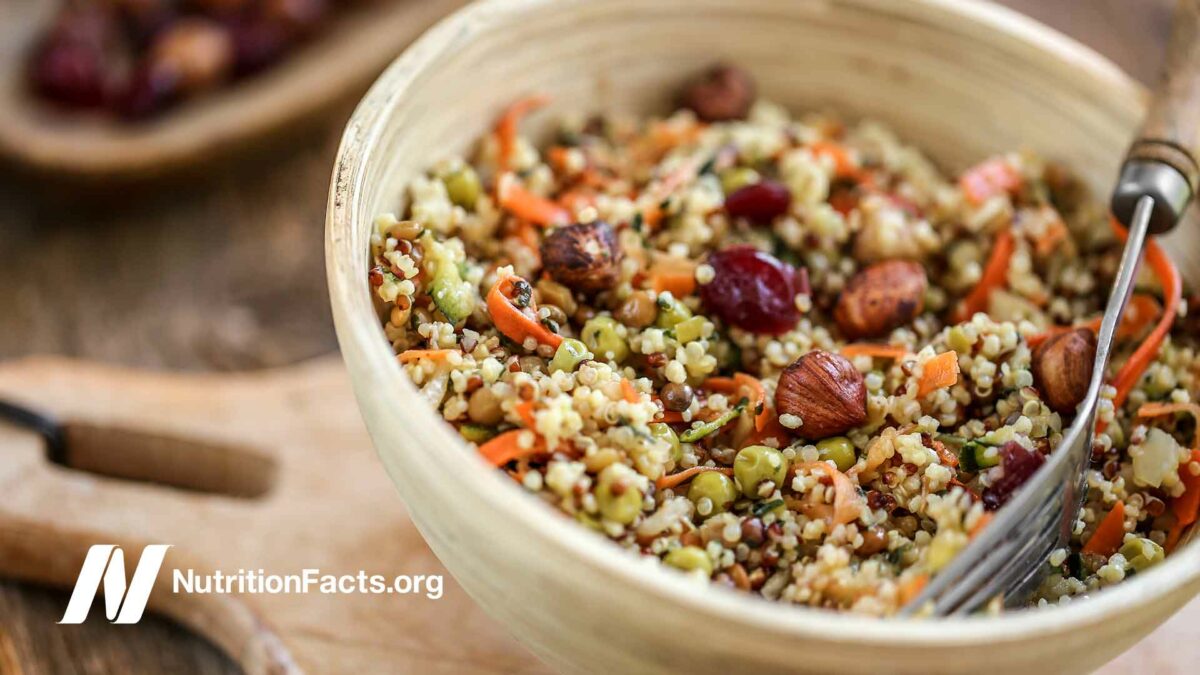
Animal Protein vs. Plant-Based Protein
I discuss a public health case for modernizing the definition of protein quality.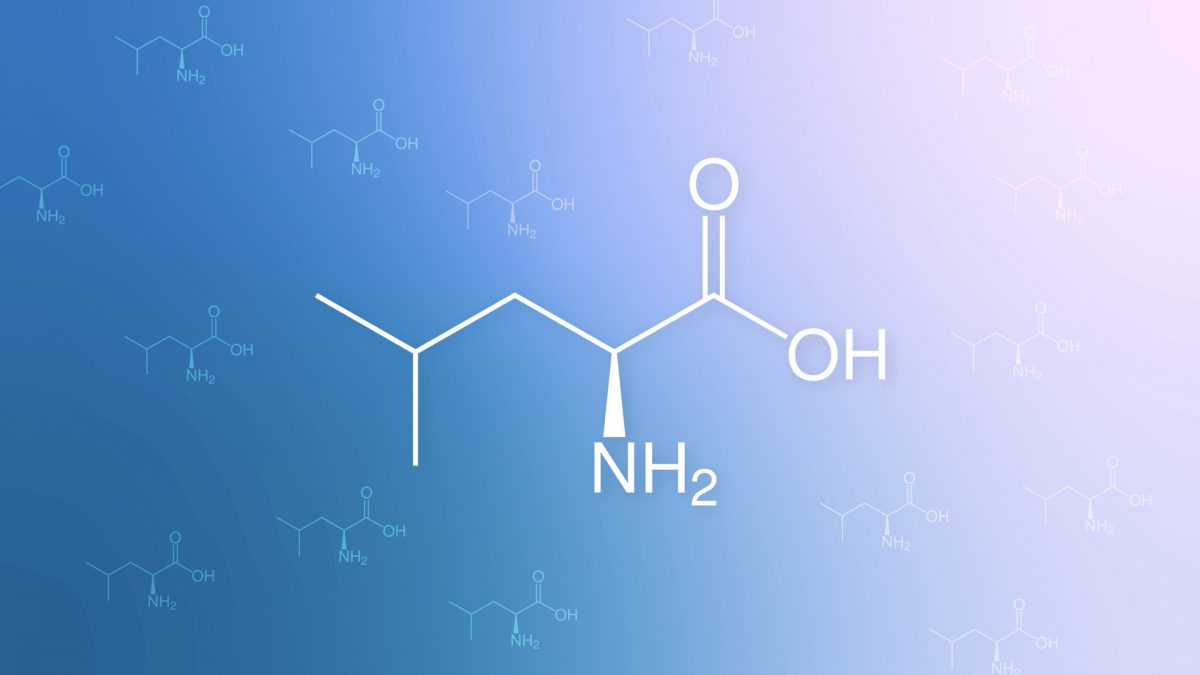
Are BCAA (Branched Chain Amino Acids) Healthy?
Why we may want to strive not to exceed the recommended intake of protein.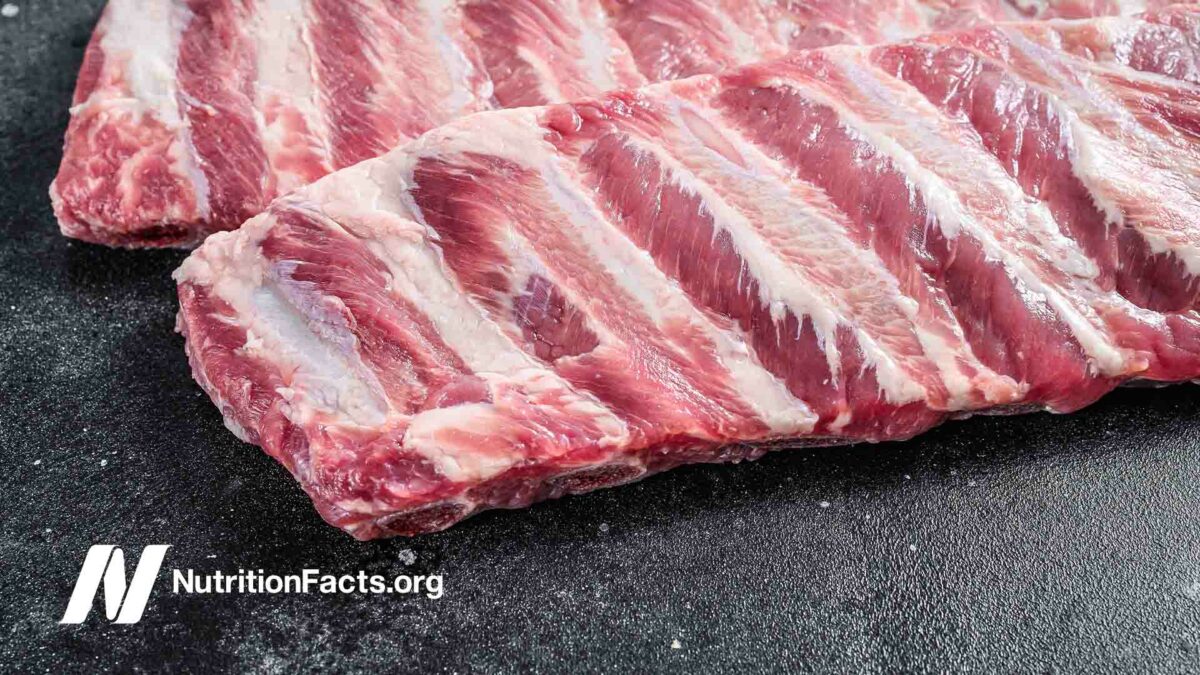
The Effect of Animal Protein on Stress Hormones, Testosterone, and Pregnancy
What happened to women who were randomized to eat more meat and dairy during pregnancy?...
Animal Protein Compared to Cigarette Smoking
Only about 1 in 10,000 people live to be 100 years old. What’s their secret?
The Great Protein Fiasco
The field of nutrition got human protein requirements spectacularly wrong, leading to a massive recalculation.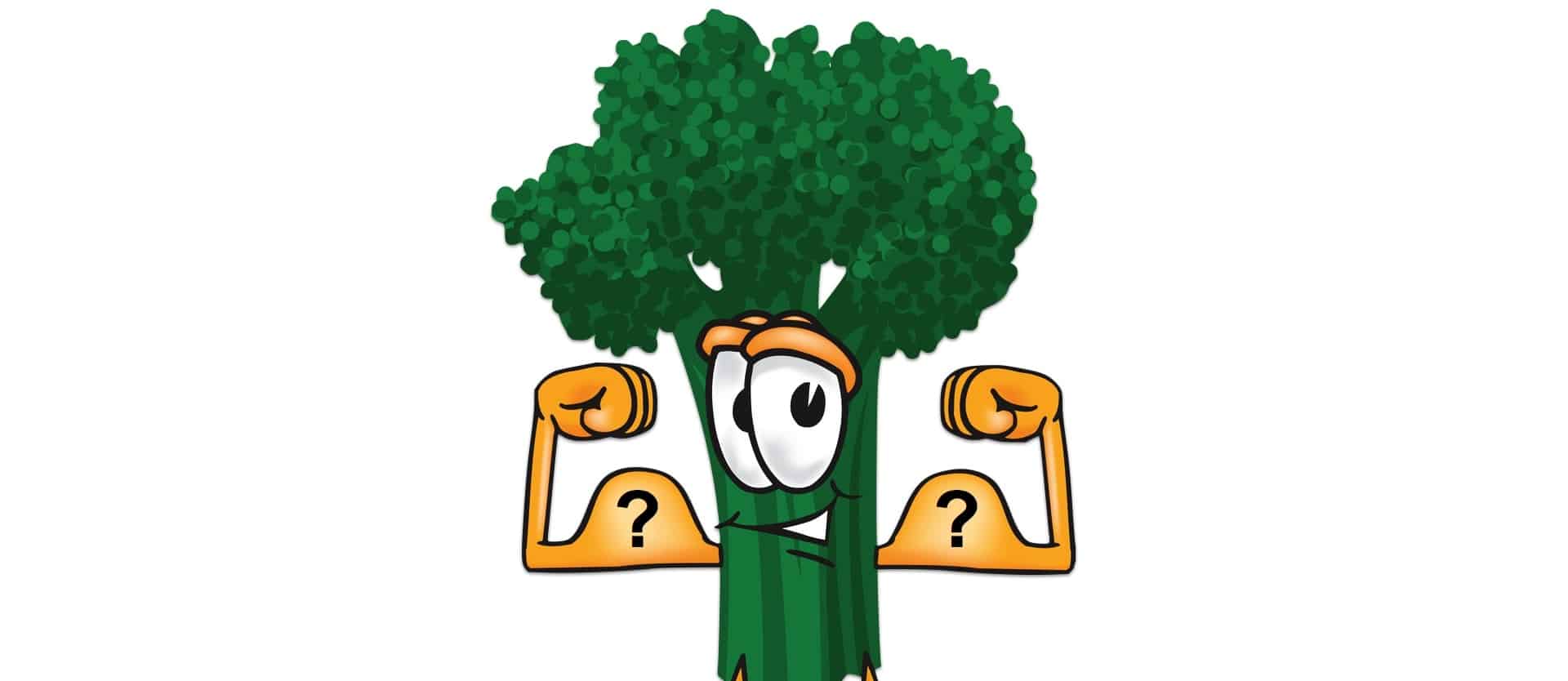
Do Vegetarians Get Enough Protein?
Nutritional quality indices show plant-based diets are the healthiest, but do vegetarians and vegans reach...
Caloric Restriction vs. Animal-Protein Restriction
The lifespan extension associated with dietary restriction may be due less to a reduction in...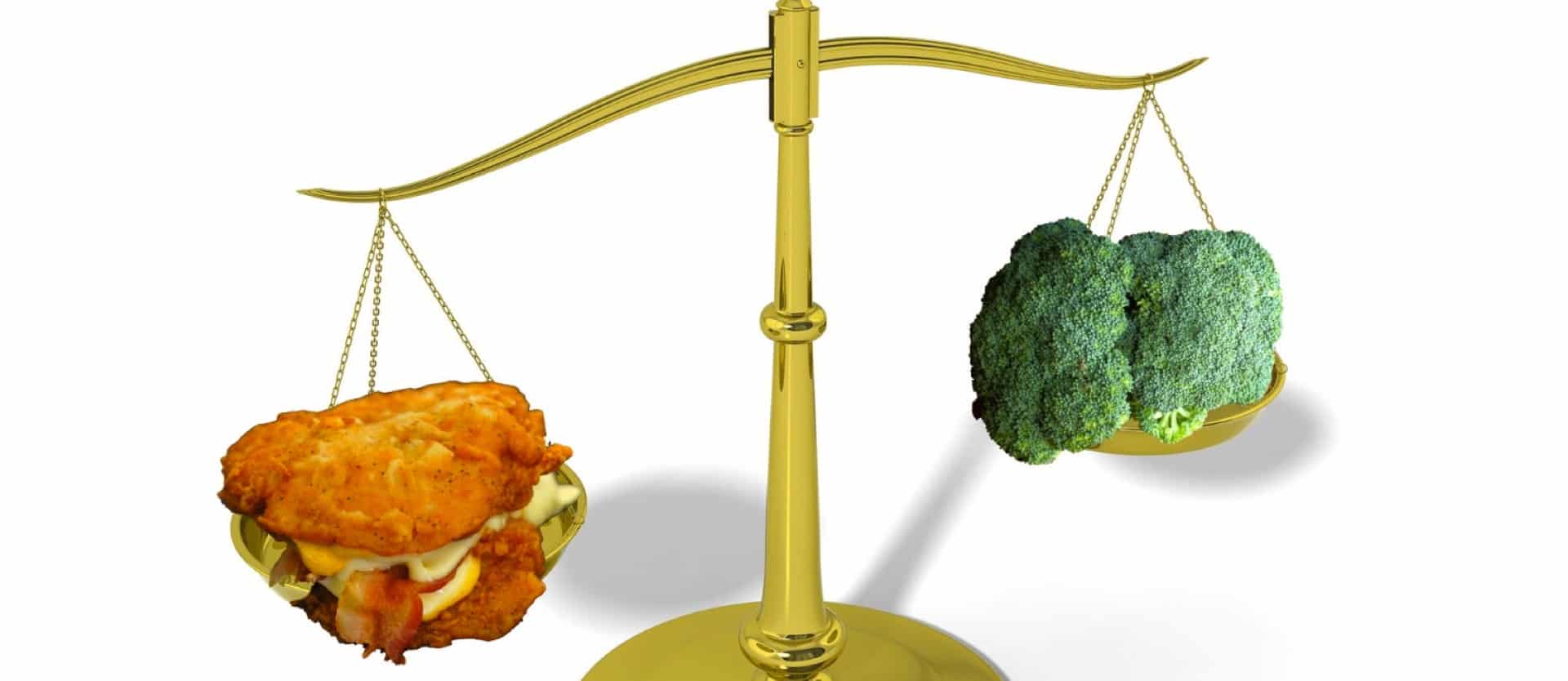
Prostate Cancer Survival: The A/V Ratio
Reducing the ratio of animal to plant protein in men’s diets may slow the progression...
Methionine Restriction as a Life-Extension Strategy
Plant-based diets may prove to be a useful nutrition strategy in both cancer growth control...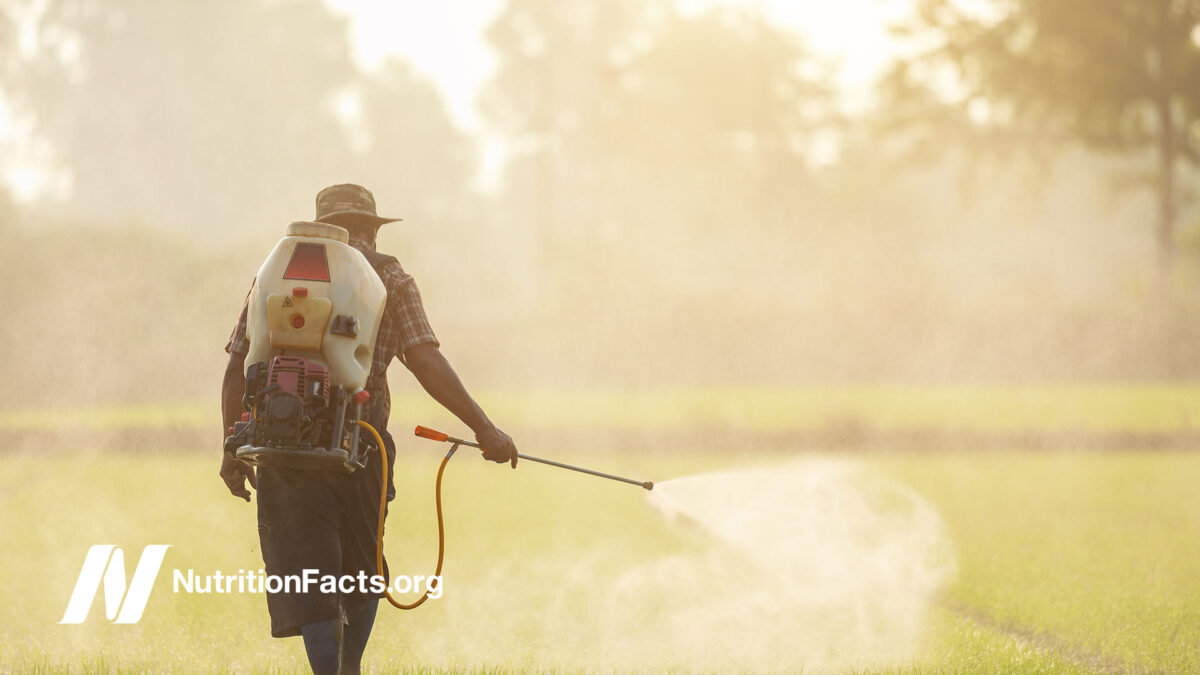
Protein, Puberty, and Pollutants
The early onset of puberty in girls associated with animal protein consumption may be due...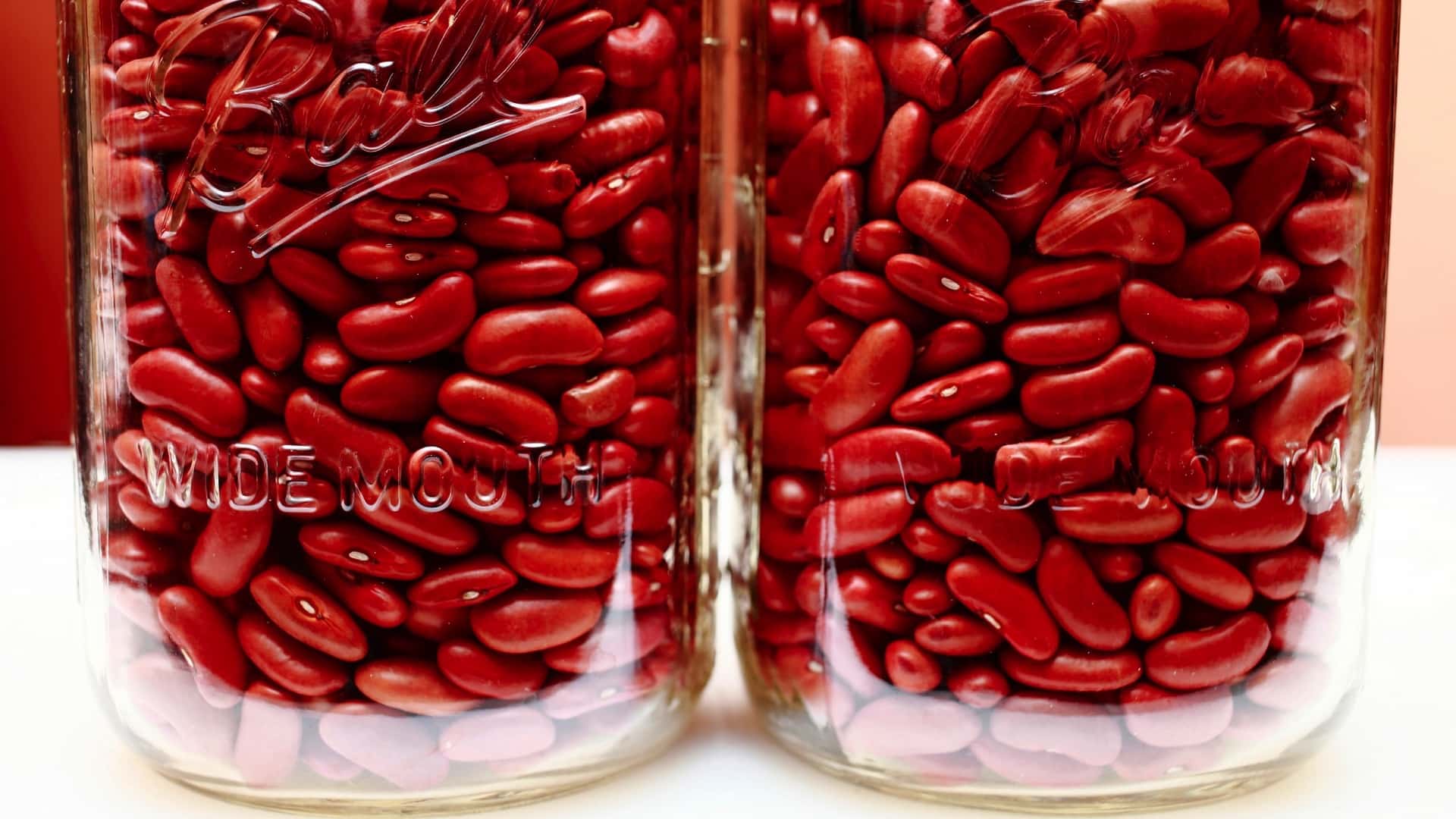
Which Type of Protein Is Better for Our Kidneys?
Anti-inflammatory drugs abolish the hyperfiltration and protein leakage response to meat ingestion, suggesting that animal...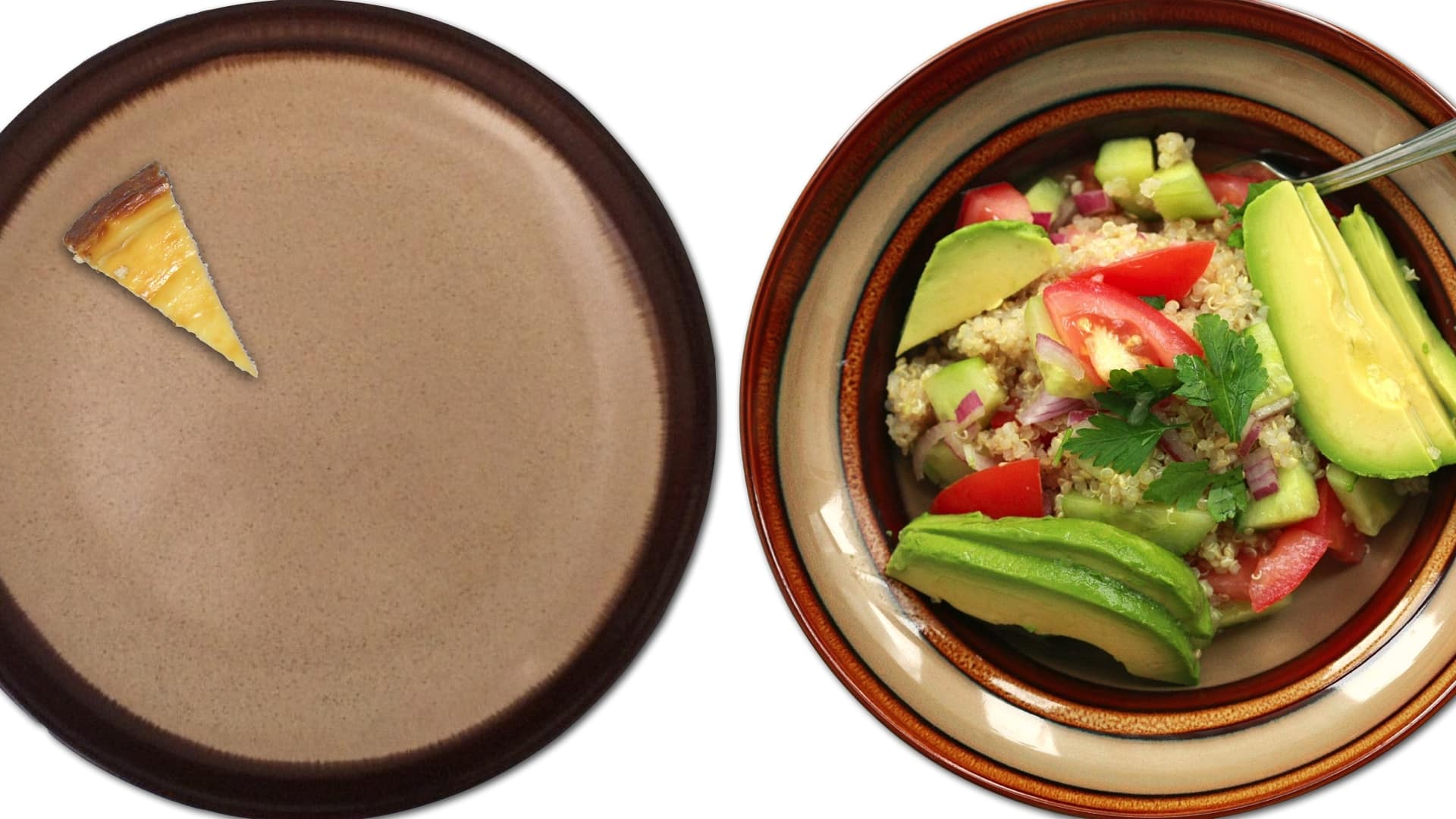
Caloric Restriction vs. Plant-Based Diets
What is the best strategy to lower the level of the cancer-promoting growth hormone IGF-1?
Paleo Diets May Negate Benefits of Exercise
The deleterious effects of a Paleolithic diet appear to undermine the positive effects of a...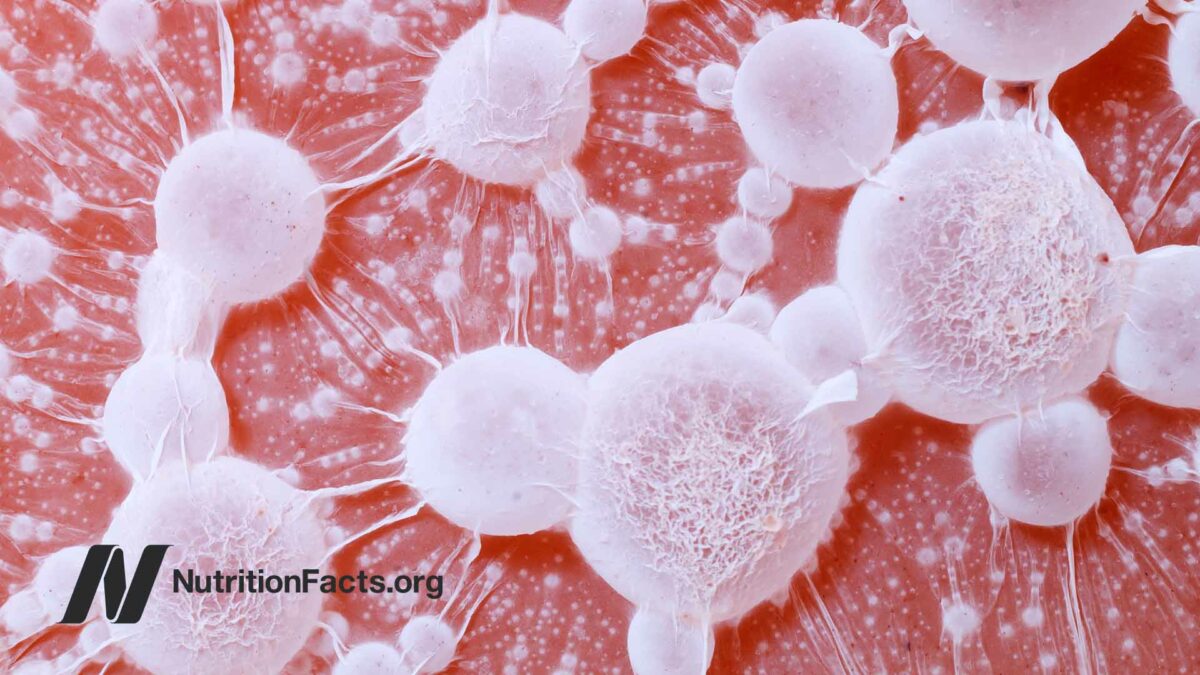
Putrefying Protein and “Toxifying” Enzymes
Certain gut bacteria can “retoxify” carcinogens that your liver successfully detoxified, but these bacteria can...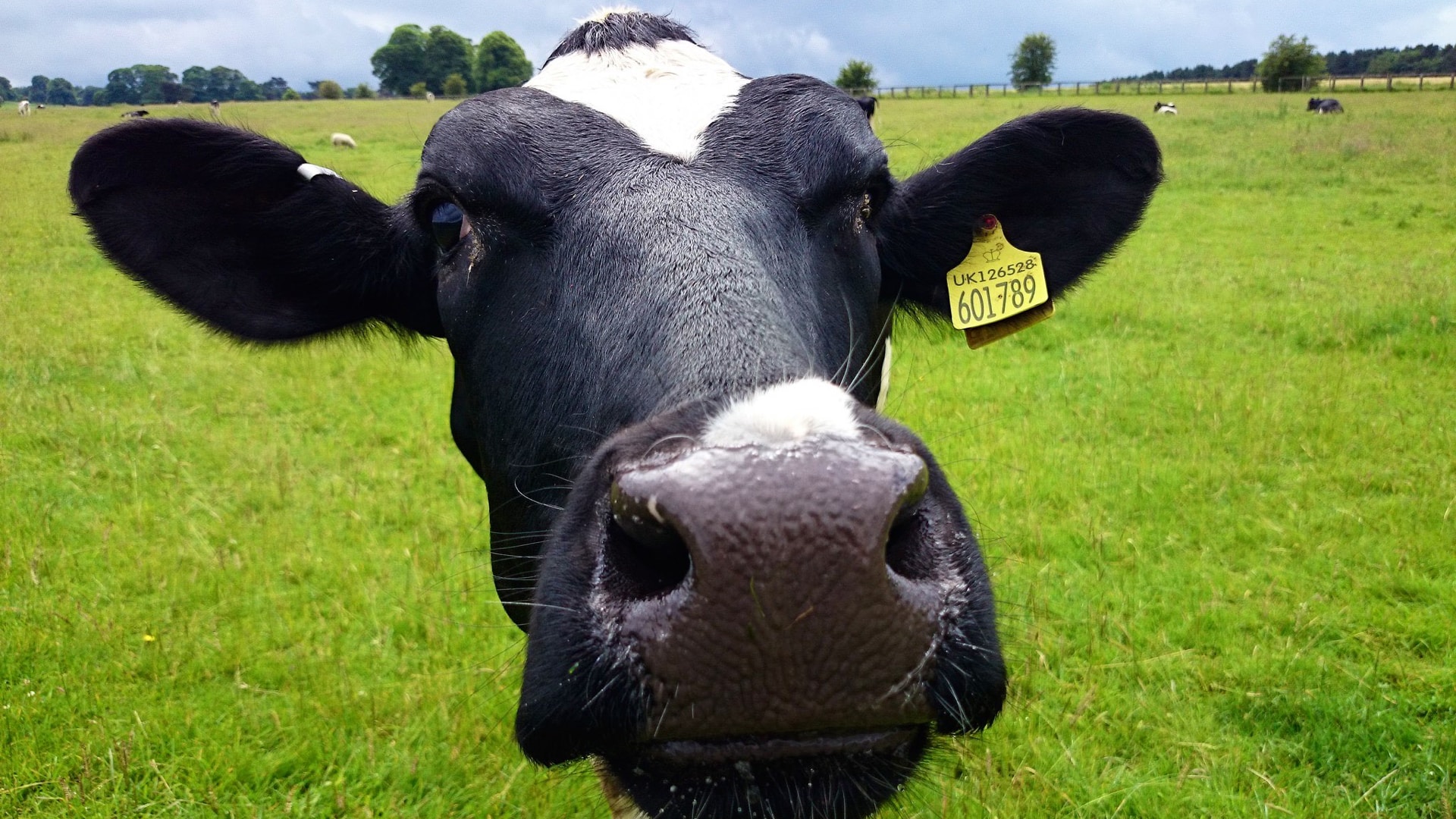
The Protein-Combining Myth
The myth that plant proteins are incomplete, necessitating protein combining, was debunked by the scientific...All Videos for Protein
-

One of the Most Effective Single Pieces of Advice for Weight Loss
Complicated weight-loss programs can work, but what if we only had to focus on a single dietary change to get the same benefits?
-

The Third Way to Boost NAD+
How can we conserve NAD+ by preventing overactivation of the enzymes PARP-1 and CD38, which guzzle NAD+?
-

Supplements for Sarcopenia (Age-Related Muscle Loss)
HMB, magnesium, omega 3s, and vitamin D are put to the test for muscle strength and function.
-

Using Prebiotics, Intact Grains, Thylakoids, and Greens to Boost Our GLP-1 for Weight Loss
Boost our natural satiety hormone GLP-1 through out diet.
-

A Plant-Based Diet for Weight Loss: Boosting GLP-1 and Restoring Our Natural Satiety Circuit
Why does our natural GLP-1 satiety mechanism fail, and what can we do about it?
-

The Best Way to Boost NAD+: Supplements vs. Diet (webinar recording)
The pros and cons of all the NAD+ supplements and what are the ways to boost NAD+ naturally with diet and lifestyle?
-

Does Increasing Protein Intake Slow Age-Related Muscle Mass Loss?
Adding extra protein to the diets of older men and women is put to the test.
-

How to Get Rid of Garlic Breath
After study participants took some garlic, researchers gave them whey protein, lemon juice, green tea, chlorophyll, 7UP soda, a raw pink lady apple, a cooked apple, parsley, spinach, and mint leaves. Which do you think worked best?
-

How to Boost Collagen Synthesis with Diet
Which foods can increase collagen deposition and prevent wrinkles?
-

Collagen Supplements for Arthritis
Can collagen beat out placebo for knee osteoarthritis?
-

Do Collagen Supplements Work for Skin Aging?
I assumed that collagen proteins would get completely broken down in the digestive tract, but I was wrong.
-

DHEA: What Is It and What Are Its Benefits?
DHEA levels naturally decline with age. Does replenishing youthful levels have restorative effects?
-

Is Soy Milk the Most Nutritious Non-Dairy Milk?
Soy milk is compared to dairy milk and other plant-based milks.
-

Plant-Based Diet for Minimal Change Disease of the Kidney
What are the three reasons plant protein is preferable to animal protein for kidney protection?
-

The Negative Effects and Benefits of Plant-Based Diets
What are the pros and cons of plant-based eating?
-

Plant-Based Diet for Treating and Reversing Stage 3 Kidney Disease
I share a touching story of the power of plant-based eating for chronic kidney failure.
-

Tongue Scraping vs. Tongue Brushing for Treating Halitosis (Bad Breath)
What causes bad morning breath, and what can you do about it?
-

Vitamin D May Explain Higher Bone Fracture Risk in Vegans
A combination of low calcium intake and low vitamin D exposure may explain higher bone fracture rates in British vegans.
-

Low-Protein Diets for Parkinson’s Disease
How might we maximize the therapeutic efficiency of levodopa?
-

Fasting-Mimicking Diet Before and After Chemotherapy
How might we replicate the protective effects of fasting with food?
-

Are the Health Benefits of Nuts Limited to Those Eating Bad Diets?
Do nut eaters live longer simply because they swap in protein from plants in place of animal protein?
-

Animal Protein vs. Plant-Based Protein
I discuss a public health case for modernizing the definition of protein quality.
-

How to Boost FGF21 with Diet for Longevity
Fasting and exercise can boost the longevity hormone FGF21, but what can we eat—or avoid eating—to get similar effects?
-

Are Baruka Nuts the Healthiest Nut?
How do barukas, also known as baru almonds, compare with other nuts?
-

The Side Effects of 3-MCPD in Bragg’s Liquid Aminos
Chlorohydrin contaminates hydrolyzed vegetable protein products and refined oils.
-

How Much Do Doctors Actually Know About Nutrition?
See if you know more about basic nutrition than most doctors.
-

Foods Designed to Hijack Our Appetites
I debunk the myth of protein as the most satiating macronutrient.
-

How to Help Control Cancer Metastasis with Diet
Randomized controlled trials show lowering saturated fat intake can lead to improved breast cancer survival.
-

The Health Effects of Mycoprotein (Quorn) Products vs. BCAAs in Meat
Clinical trials on Quorn show that it can improve satiety and help people control cholesterol, blood sugar, and insulin levels.
-

Plant-Based Meat Substitutes Put to the Test
What are the effects of plant-based meats on premature puberty, childhood obesity, and hip fracture risk?
-

Plant-Based Protein: Are Pea and Soy Protein Isolates Harmful?
What are the different impacts of plant protein versus animal protein, and do the benefits of plant proteins translate to plant protein isolates?
-

Are Beyond Meat and the Impossible Burger Healthy?
What happens when you compare the trans fats, saturated fat, sodium, and cholesterol levels in plant-based versus animal-based burgers?
-

Is Sorghum a Healthy Grain?
How does sorghum compare with other grains in terms of protein, antioxidants, and micronutrients? And the benefits of red sorghum compared to black and white varieties.
-

Vegetarians and Stroke Risk Factors—Animal Protein?
Might animal protein-induced increases in the cancer-promoting grown hormone IGF-1 help promote brain artery integrity?
-

How to Prevent the Next Pandemic
We need to reform the food system before it’s too late.
-

How to Lower Lp(a) with Diet
What to eat and what to avoid to lower the cardiovascular disease risk factor lipoprotein(a).
-

Treating High Lp(a): A Risk Factor for Atherosclerosis
What is this lipoprotein(a) and what can we do about it?
-

Benefits of Quinoa for Lowering Triglycerides
How do the nutrition and health effects of quinoa compare to whole grains?
-

Kids’ Breakfast Cereals as Nutritional Façade
Plastering front-of-package nutrient claims on cereal boxes is an attempt to distract from the incongruity of feeding our children multicolored marshmallows for breakfast.
-

The Effects of Hormones in Milk on Infertility in Women
Dairy consumption is associated with years of advanced ovarian aging, thought to be due to the steroid hormones or endocrine-disrupting chemicals in cow milk.
